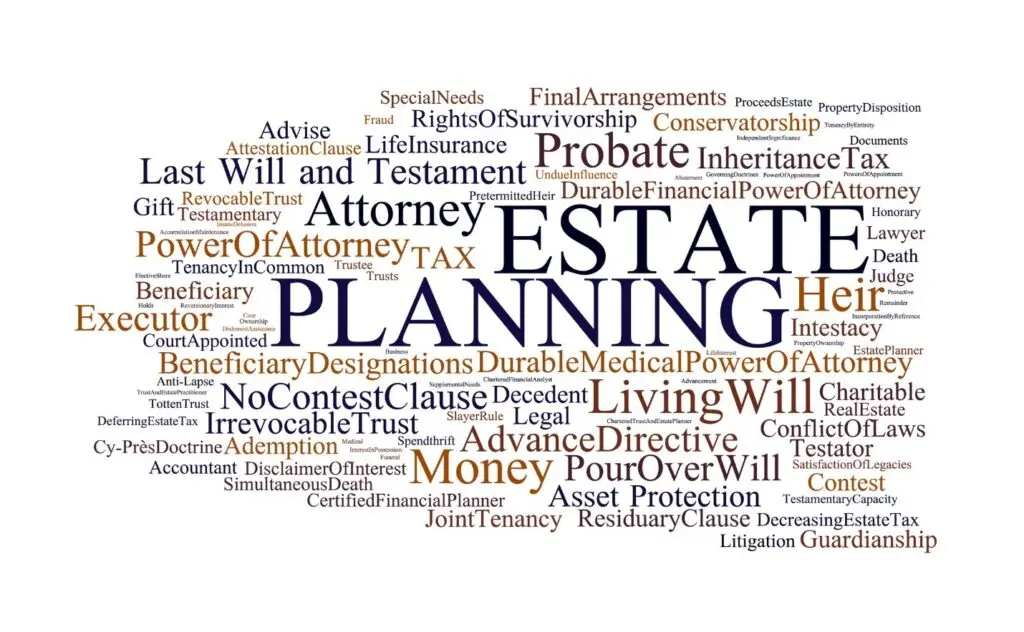Hey there! Are you thinking about how to make your retirement savings work harder for you? Real estate might just be the answer you’re looking for. It’s not just about buying a home; it’s an opportunity to tap into significant tax advantages that can boost your retirement funds. Investing in real estate can offer more than just a place to live—it can be a smart way to grow your money.
We understand that diving into the world of real estate investments can be daunting at first, especially when it comes to understanding all the tax perks and how to use them. That’s why we’re here to break it down, making it super easy to understand how you can use real estate to your advantage during retirement. Whether you’re just starting to think about your retirement planning or you’re looking for ways to increase your existing savings, real estate could be a key component of your strategy.
In this discussion, we’ll explore some powerful tax-smart strategies involving real estate that can help safeguard your financial future. From tax deductions to leveraging your IRA, there are several paths that might lead you to greater financial comfort down the road. Whether you’re a first-time investor or an experienced one, understanding these elements can make a huge difference in managing and maximizing your retirement assets. Let’s get started on discovering how real estate can enhance your retirement planning.
Let’s explore how trusts can be a powerful tool for real estate investors. Whether you’re a seasoned investor or just starting out, understanding how to utilize trusts in managing your property portfolio can significantly enhance your investment strategy and provide long-term benefits. Join us as we delve into the basics of trusts for investors, highlighting the key benefits and considerations that can help you make informed decisions.
Understanding Real Estate Tax Benefits for Retirement Planning

When we look at beefing up our retirement portfolios, real estate stands out as a solid asset and a smart way to enjoy some attractive tax perks. By incorporating real estate into your retirement strategy, you’re not just investing in property; you’re also potentially lowering your tax bills. Real estate investments give us opportunities to deduct many expenses associated with owning and managing properties. These deductions can positively affect our overall financial health by decreasing the amount of our income subject to taxes.
The magic of real estate in retirement planning really shines through its capacity for generating ongoing passive income, which can be especially appealing as a steady income source after you’ve stepped back from regular employment. Additionally, the capital appreciation of property over time provides an excellent inflation hedge, helping maintain your purchasing power during retirement.
Top Real Estate Tax Deductions and Credits

Navigating the landscape of tax deductions and credits can significantly reduce your taxable income, which is why knowing what’s available to property owners is crucial. First off, mortgage interest is one of the biggest deductions you can claim. This is the interest you pay on the loan you’ve taken out to purchase your property, and deducting it can lead to substantial savings on your tax bill.
Next up are property taxes, another major deductible expense. What you pay in property taxes can often be subtracted from your gross income, lowering your tax obligations. Additionally, if you’re renting out a property, you can also write off operating expenses such as repairs, management fees, and even travel expenses related to managing your property.
For those making improvements to their properties, the cost can sometimes be depreciated over the life of the asset, spreading out the expense deductions over several years and providing ongoing tax relief. Remember, each of these deductions and credits has its own set of rules and limits, so it’s essential to understand them fully or consult with a tax professional. By strategically managing these deductions, you can make your investment in real estate work even harder for your financial future.
Strategies for Leveraging IRAs in Real Estate

Real estate can be a fantastic addition to your retirement planning, especially when you incorporate self-directed IRAs into the mix. Using your IRA to invest in real estate gives you the advantage of tax-deferred or even tax-free growth, depending on the type of IRA you employ. Let’s walk through how you can start taking advantage of this strategy.
First, open a self-directed IRA through a qualified custodian who handles real estate investments. This type of IRA provides you the freedom to diversify beyond the usual stocks and bonds into real estate. Once it’s set up, you can direct the IRA to purchase real property, which becomes a part of your retirement portfolio. It’s key to remember, though, that any property bought through an IRA must strictly be for investment purposes. This means you and your family cannot use it for personal purposes as long as it’s under the IRA umbrella.
The benefits are significant: not only do your investment gains accrue tax-free, but any rental income generated is also not taxed immediately. Instead, taxes are due upon the eventual withdrawal in the case of a traditional IRA or not at all if it’s a Roth IRA, as long as certain conditions are met. This setup preserves more of your capital to reinvest and grow over time.
Navigating Property Taxes and Exemptions

Reducing property taxes is an integral part of maximizing your earnings from real estate investments. Getting familiar with various property tax exemptions and strategies can significantly decrease the taxes you pay, enhancing the profitability of your investment portfolio.
Each state has its exemptions, and several cater specifically to seniors, which is handy for retirees looking to lessen their tax burden on real estate investments. Common exemptions include reductions for primary residences, disabled veterans, and properties used for agricultural purposes. It’s wise to review your state’s property tax guidelines or consult with a tax advisor to ensure you’re not missing out on any beneficial exemptions.
Furthermore, if you make any modifications to improve energy efficiency or accessibility in your properties, you might qualify for additional deductions. Keeping accurate records of these improvements and consulting with property tax professionals can make a notable difference in managing the financial impact of taxes on your investment.
Realizing Your Retirement Goals

As we’ve explored, real estate offers various paths to enhance your retirement portfolio and take advantage of significant tax benefits. From smart deductions on your properties to using self-directed IRAs for tax-free growth, these strategies can help solidify your financial future.
At Elysium Real Estate Investments LLC, we’re committed to guiding you through these opportunities with expertise and personalized advice. We understand that every investor’s needs are unique, and our approach is always tailored to meet those specific needs, ensuring you’re positioned to meet and exceed your retirement goals.
If you’re ready to tap into the potential of real estate for your retirement tax planning or want more information on how to start, connect with us today. Let’s build a thriving future together with strategic real estate investments that work for you.
Disclaimer: The information in this article, “Tax-Smart Retirement: Real Estate-Based Tax Planning Strategies,” is for general informational purposes only and does not constitute professional advice. Readers must consult their legal, tax, or financial advisors before making investment or tax-related decisions. The strategies discussed in this article may not be suitable for all individuals, and the applicability of these strategies may vary based on individual circumstances and current tax laws, which are subject to change. Elysium Real Estate Investments LLC makes no representations or warranties, express or implied, regarding the information’s accuracy, completeness, or suitability. Using this article, you agree that Elysium Real Estate Investments LLC is not liable for any losses or damages arising from using or relying on this information.
LEARN TO INVEST WITH US.
We accept queries from accredited domestic and foreign investors seeking single and small multifamily investment opportunities.




